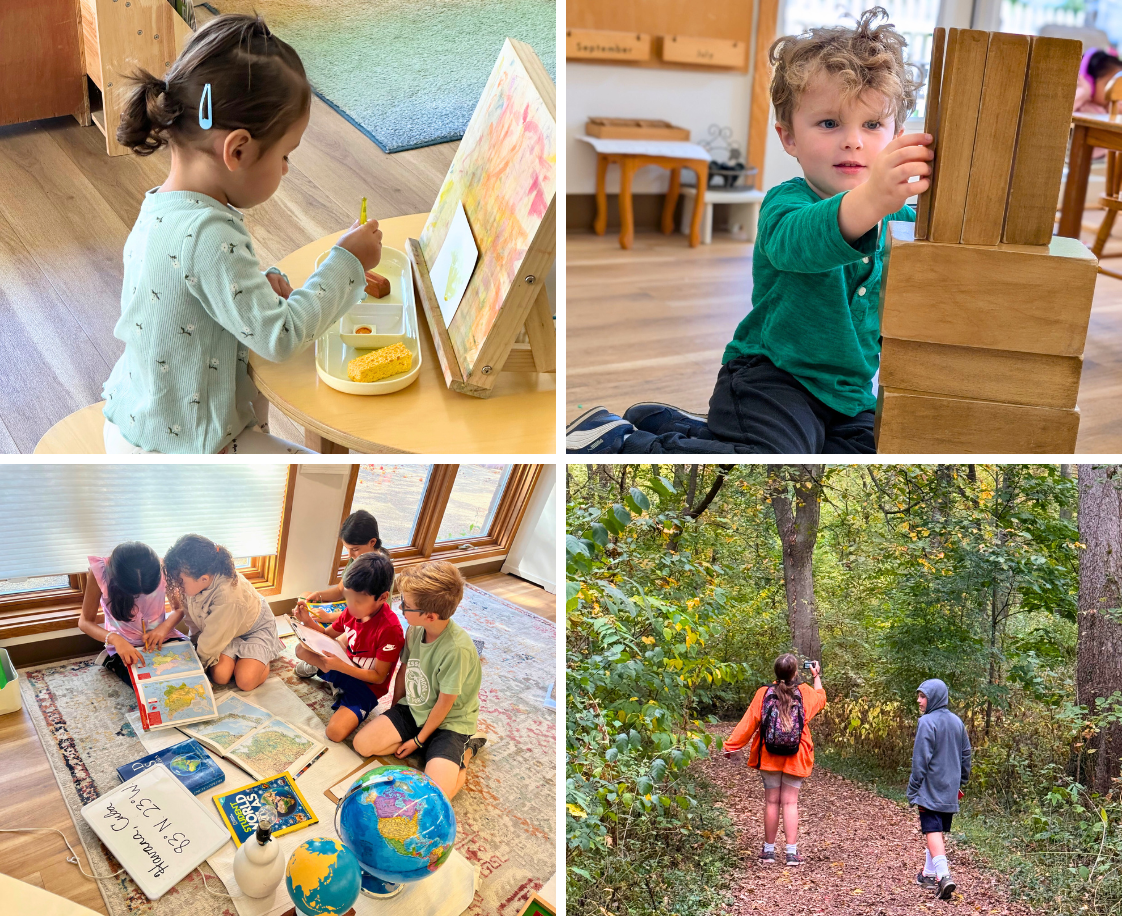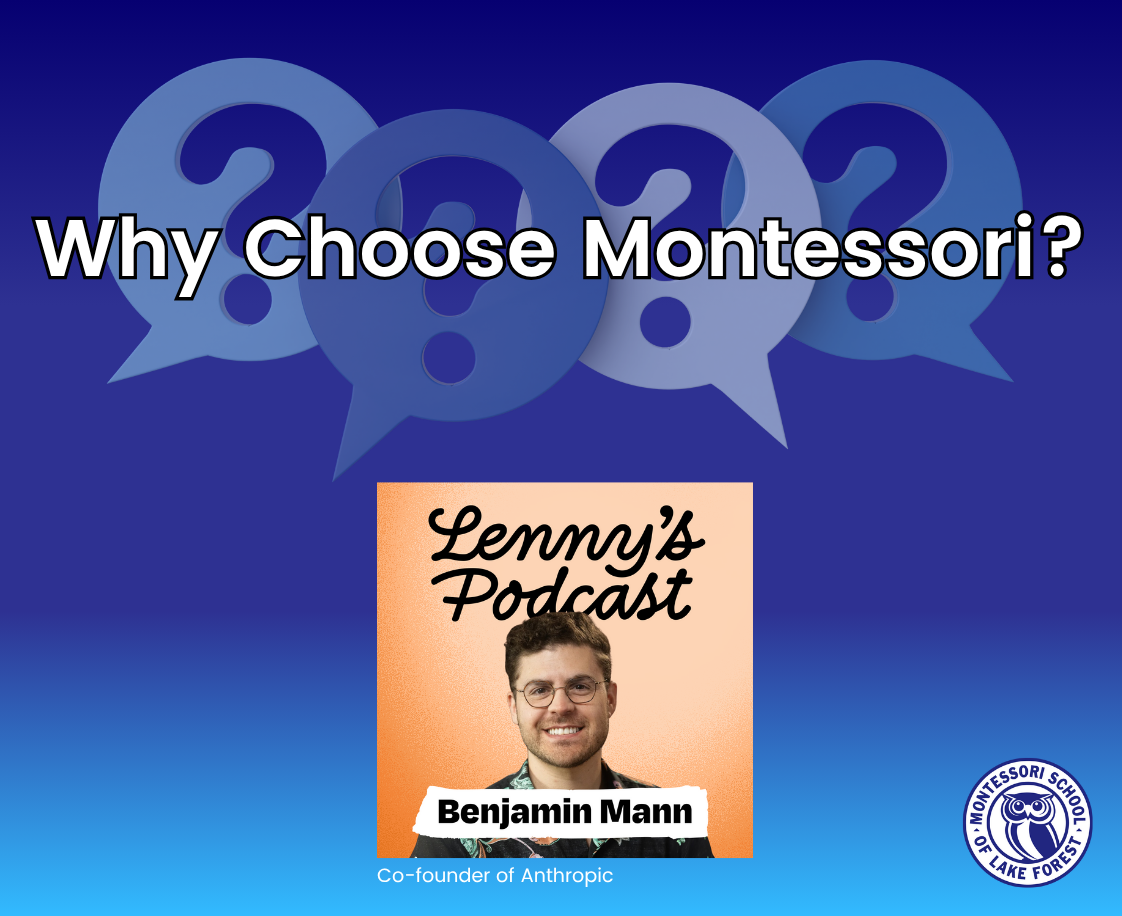By Mia Stompanato, Primary Directress at the Montessori School of Lake Forest
as featured in Daily North Shore on
( https://jwcdaily.com/2017/10/23/montessori-where-children-love-to-learn/
)
As we roll into the second month of school, I sit back, observe my happy students and wonder what the state of education could be if every child could learn in such a blissful way.
It is wonderful to be back in school and involved in our routine again. I am so thankful for parents who support our program and show their enthusiasm for our school community. Ours is a like-minded community where parents and children work together with teachers and faculty members to gain the richest benefits from their child’s Montessori experience. The children whose families are involved and have a knowledgeable understanding of Montessori benefit the most from our program. Just as we tailor our lessons to the needs of each individual child, so can families adapt to their child’s Montessori experience to support their family’s journey.
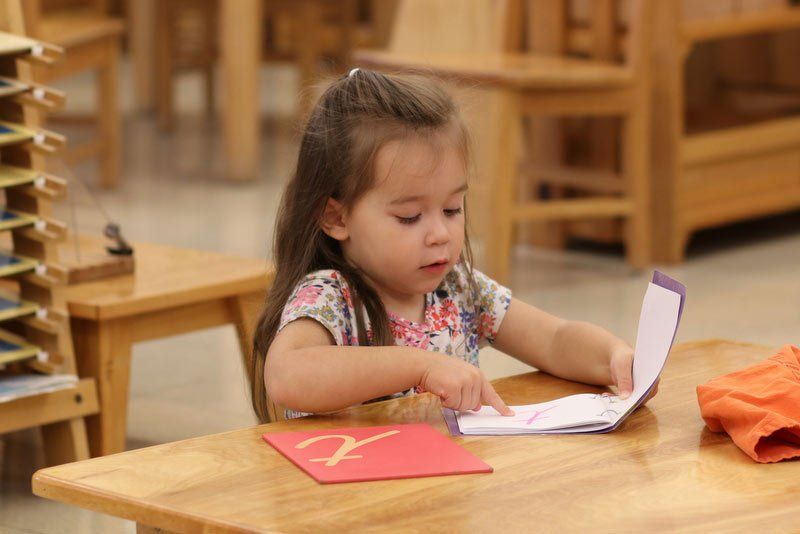
Unlike traditional school, Montessori students remain in the same environment with the same teacher for their entire Primary (3-6 years old) developmental cycle. This enables the teacher to really get to know the child, build upon milestones and support struggles. During this three or four year span, lessons are tailored to the needs and interests of the child at a given time. This enables the teacher to offer each child the same complete curriculum, just at their own pace.
The earliest exercises provide an opportunity to develop concentration, coordination and an understanding of logical sequencing. Parents always chuckle when they hear about their child polishing wood at school. This activity provides so many benefits in addition to a polished wooden item. The child follows a series of steps sequenced in a particular manner to get the desired result. This organization of sequences is an important skill for any child to master. The intense flow of work also helps to build the child’s concentration.
Offered in tandem, lessons on sensorial materials offer a foundation for sensorial impressions that support mathematical learning. By manipulating and making discoveries on guided materials, the child truly experiences mathematical concepts and is eager to explore. These materials lay the foundation for an eager and adept mathematical mind.
During the intermediate phase of the Primary cycle, a child’s exploration and language are associated with discoveries. Thus the child has many opportunities to make observations and findings by practicing lessons over and over again. Rather than rushing the child on to a new topic, each child is encouraged to learn and explore as new levels of difficulty are offered by the teacher based on the child’s needs and abilities.

During the Extended Day phase, the child is invited to continue their work with the other 5 and 6 year olds in a unique afternoon session. Through further exploration and advanced lessons, connections and abstractions become evident to the children. It is during this phase that we see the benefits of a strong foundation of practice and concentrated work. During this phase, the child is also encouraged to offer assistance to their peers. By sharing their skills and knowledge with others, the child solidifies their knowledge and expresses it in ways that show they have internalized the concepts and are able to apply them.
A successful Primary Developmental cycle always includes the child’s Kindergarten year. When parents observe the Primary classroom, they notice the high level of work (both academic and social) of the Extended Day “class elders.” Because the children have moved up the ranks and earned their role in the classroom, they dutifully rise to the role of leader as they prepare for Elementary.
This is one of the reasons why we strongly encourage parents to allow their child to complete the Montessori Primary cycle, culminating at the end of their Kindergarten year. With the same enthusiasm as a young child placing the smallest cube on the pink tower, so our Primary Class Elders celebrate when they culminate their Extended Day experience in the Primary environment. At the end of the school year, each of our Elementary-bound Class Elders receives a “Key of Knowledge” symbolizing the foundational work in Primary that they have done to “unlock” a lifetime of learning and discovery. We welcome you to observe our magical Primary classroom, where learning, discovery and excitement are a natural part of every day.
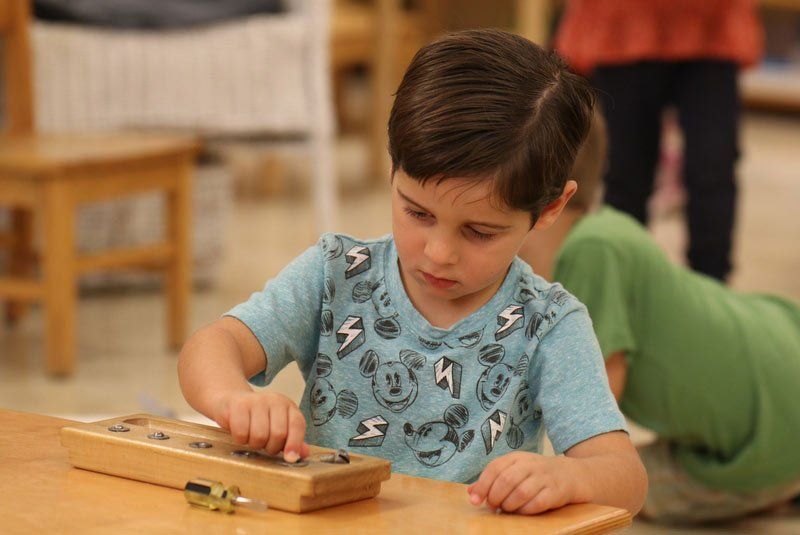
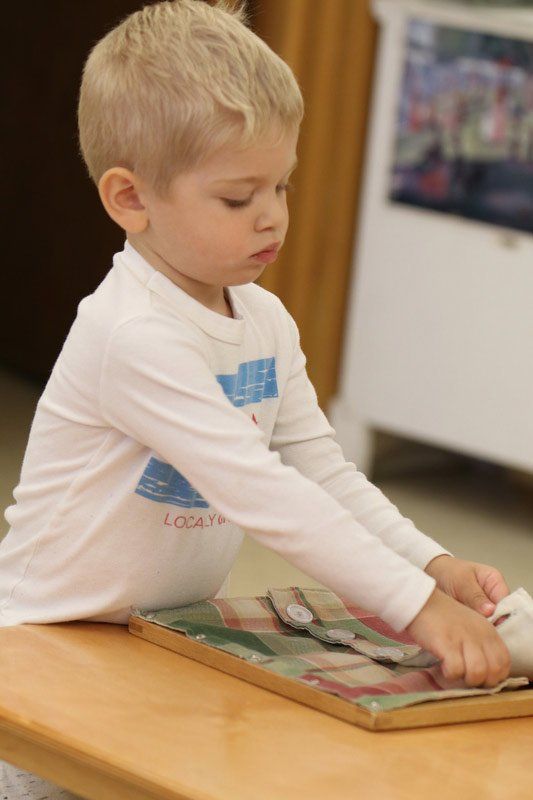
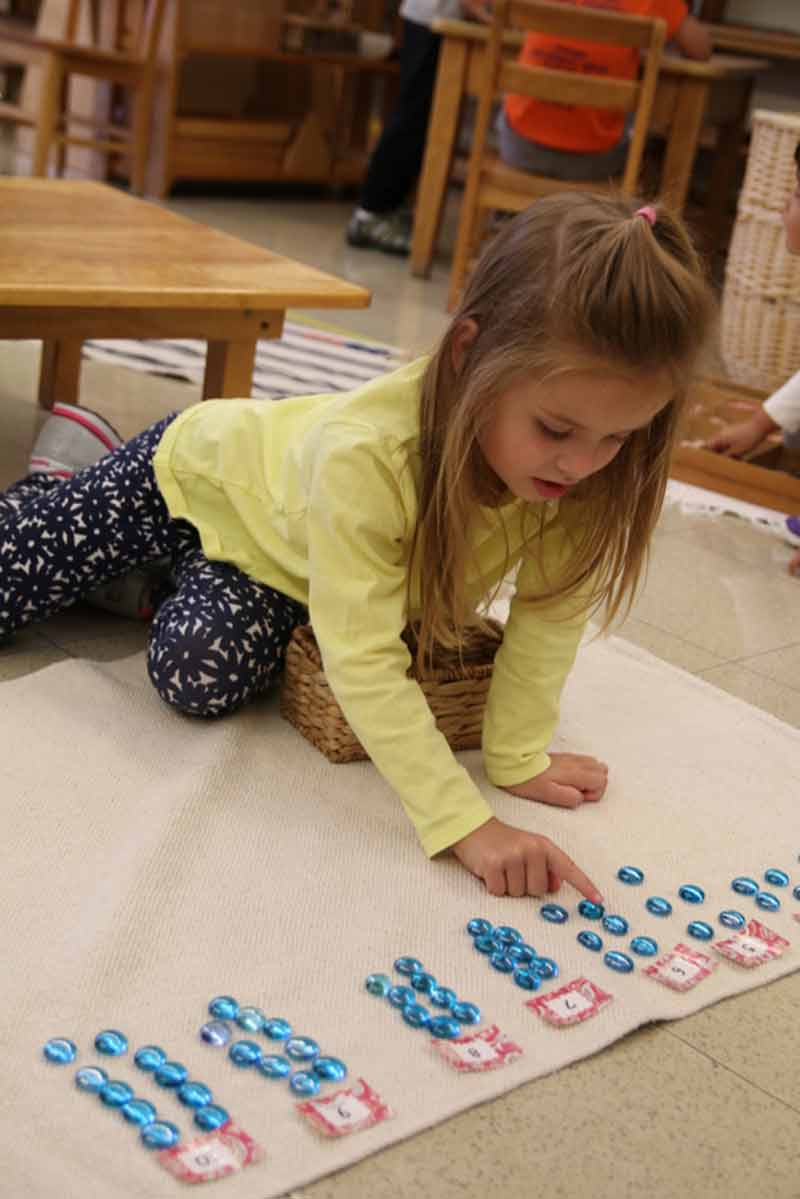
The post Montessori: Where Children Love to Learn appeared first on Montessori School of Lake Forest.

